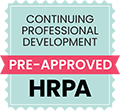Overview
The Advanced Health Leadership Program targets current and potential members of executive teams in the health system; it focuses on the development of the next generation of health leaders. It seeks to improve their understanding and skills in the areas of leadership, management of change, emotional and political intelligence and Integrative ThinkingTM.
The program has been redesigned to reflect recent changes and needs in health systems across Canada (e.g. home care and primary care reform, new funding models, technological shifts and resulting opportunities, evolving structures, the need for personal resilience, financial sustainability, greater demand for integration and quality, ). This program is designed to equip senior leaders in the health and life sciences sector with new strengths to play a leadership role in a changing health system.
Program Details
The Advanced Health Leadership Program will launch its eighteenth offering in 2024. The program focuses on leadership competencies required to implement the foundational building blocks of personal, organizational and system change. Through a combination of health leadership development and management school expertise, the program provides a challenging opportunity for personal leadership development for current and potential members of executive teams working in the sector. The seniority and diversity of participants creates a unique forum and network for discussion, reflection and learning that will have immediate and lasting relevance to their careers.
Program Themes
System, Organizational and Personal Leadership
Successful leadership means determining what to do under conditions of great uncertainty, while considering an enormous amount of information and the multiple and conflicting interests of many relevant parties. Additionally, leaders in health care are often required to accomplish their objectives by working with (not through) people over whom they have little or no formal control. That is, they influence the thoughts and behaviours of others through persuasion rather than coercion. Lastly, leaders are architects, designing organizations and environments in which staff can maximize individual performance and the performance of their organizations.
Management of Change
Understanding and leading change effectively requires the adoption of a systematic approach to change and a process for working with individuals and groups, both inside and outside the organization. Learners will develop a range of strategies and tactics that will assist them in designing and implementing major change initiatives.
Emotional and Political Intelligence
Effective leaders are self-aware and resilient. They understand their own emotional responses and the impact their behaviour has on others. This constitutes emotional intelligence and connects closely to political intelligence, which involves the development of sophisticated skills in partnership, network building, influencing, negotiating and management of complex problems. Learners in this program will be able, in a confidential and secure environment, to study their own and others' reactions to common group and organizational experiences and consider how their behaviour is affected by both conscious and unconscious forces.
Integrative ThinkingTM and Managerial Tools
Integration is the hallmark of effective health systems. As health systems move aggressively towards implementing organizational system changes, the ability to think integratively will be paramount. Integrative thinkers build models rather than choose between them. Their models include consideration of numerous variables such as clients, employees, other health service providers, cost structures, health sector evolution and legislative environment. Their models capture the complicated, multi-faceted and multi-directional causal relationships between the key variables in any problem. Integrative thinkers consider the problem as a whole, rather than breaking it down and farming out the parts. They creatively resolve tensions without making costly trade-offs, turning challenges into opportunities. Health sector leaders will be exposed to a range of integrative thinking frameworks and tools and will develop the means to adapt and apply them to their organizations.

Professor of Strategic Management
Brian Golden is the Sandra Rotman Chair in Health Sector Strategy at the University of Toronto and The University Health Network (joint appointment Faculty of Medicine); Professor of Strategic Management at Rotman; Co-Academic Director, Global Executive MBA for Healthcare and the Life Sciences and Academic Director, Sandra Rotman Centre for Health Sector Strategy. Brian conducts research and teaches in the areas of strategic change and implementation, health system integration and funding, governance, organizational strategy and leadership. Among his published work are articles in The Canadian Medical Association Journal, Health Policy, Healthcare Quarterly, Healthcare Papers, Healthcare Management Science, The Annals of Pharmacotherapy, Clinical Oncology, The Strategic Management Journal, Management Science, Administrative Science Quarterly Academy of Management Journal, Academy of Management Review, and The Harvard Business Review.
Rotman Executive Program faculty are known for their ability to translate the latest research into practical applications for the workplace, and to transmit skills to participants with the best teaching techniques. Industry leaders contribute to our programs to bring you the most up-to-date best practices and a wealth of real-world experience.
Who Should Attend
The program is aimed at current or potential senior members of leadership teams in health service provider organizations, agencies and other health system organizations. It is designed to draw a mix of clinical and non-clinical leaders. Typical job titles include Chief Executive Officer, Chief of Nursing or Medicine, Chief Financial Officer, Vice President, Director of Marketing, General Manager, Senior Consultant, Chief Operating Officer, Executive Director, and Clinical Department Head.
While most of the places in the program are for participants coming from publicly funded organizations (transfer payment agencies), participants from private sector organizations that support the publicly funded system are encouraged to apply.
Selection Criteria
The selection committee uses a variety of criteria in its participant selection decisions:
- on track to be a senior leader (clinical or non-clinical), executive, or CEO in the next 5 years
- currently on an executive team or evidence of executive-level leadership (approximately 10-20 years of experience)
- responsibility for financial and/or clinical performance
- history of successfully managing and motivating staff
- record of initiative and achievement (e.g. successfully led a change process that delivered tangible results)
- experience of successfully working with a broad set of relevant parties, including: clinicians; professional associations; governments; and other provider organizations
- indications of career progression and ambition based on resume and personal statement
- strong letter of support from a CEO or Board Chair
Testimonials
AHLP was a rare and welcome opportunity to step out of the intense demands of hospital leadership and to reflect on my leadership values, strengths and challenges in a supportive, collaborative setting. The sequential model and immersive approach gives this program greater power and impact than other leadership courses I have participated in.
Dr. Brian Hodges | Executive Vice President, Education & Chief Medical Officer
University Health Network
When people are pushed out of their comfort zone, that’s when breakthrough learning occurs. The program helped me to articulate what kind of leader I want to be, and provided me with the skills and tools to take me to another level.
Stacey Daub | President & CEO
Quinte Health Care
It’s been 10 years since I attended the AHLP and I can say that I still reflect on some of the learnings- especially around change management. The cohort of peers was and continues to be an amazing resource that I have taken full advantage of as I’ve moved to different roles in the health system.
Heather McPherson | President & Chief Executive Officer
Women’s College Hospital
As a community-based health leader this unique course was invaluable because it provided research based leadership principles that can be directly applied to our most pressing health system challenges. AHLP challenged my own leadership through its strategic design of course content and having a wide spectrum of health care leaders working together.
John Neufeld | Executive Director
House of Friendship
How to Apply, Fees and Available Scholarships
Before proceeding to the online application, please take the time to read the application policies. Also, please note that during the application process you will be required to upload three documents:
1) A resume
2) A one or two page personal statement that indicates:
- why you wish to participate in this program and why now
- your career aspirations for the next 5 to 10 years
- your current responsibilities (e.g., financial, clinical, for patients or clients, for staff)
- a record of accomplishment
- a summary of your experience working successfully with a broad set of stakeholders, including: clinicians; professional associations; governments; and other provider organizations
3) A reference letter
Please provide a reference letter from the most senior person in your organization. If you are CEO or Executive Director (in organizations where ED is the most senior staff position), the letter should be written by the Board Chair. These letters are important and should be detailed and specific with respect to why they believe you will benefit from this program and how they believe you will contribute to other participants. We recommend you share the admissions criteria with letter-writers in advance.

Note to physician leaders: AHLP fulfills the full academic requirement* for the Canadian Certified Physician Executive (CCPE) designation, offered through the Canadian Society for Physician Leaders *for the Academic Route

Attendance at this program entitles certified Canadian College of Health Leaders members (CHE / Fellow) to 10 Category II credits towards their maintenance of certification requirement.
 This program has been approved for 97.5 CPD hours under Section A of the Continuing Professional Development (CPD) Log of the Human Resource Professionals Association (HRPA).
This program has been approved for 97.5 CPD hours under Section A of the Continuing Professional Development (CPD) Log of the Human Resource Professionals Association (HRPA).